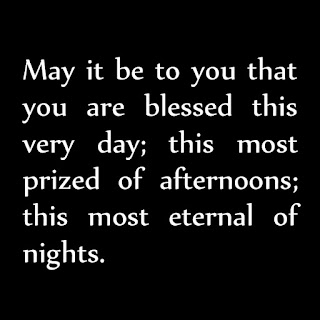PANFLUTES have
always dredged up emotion from within me; a spoil of my heart’s movement, and
often tears, that are not quite sadness and not quite joy.
They are tears
of an eternity’s longing — not to long for eternity, per se.
But touching
eternity is an experience that any human being will welcome if they value their
truth. There are some topics with which only God can converse upon. Some topics
are well out of the reach of human ingenuity. Topics that liven the emotions,
for instance.
As I listen to
instrumental hymns this day, I’m accorded God’s sanctity, and it wells up from
within me, the state of having been touched — deeper than cognitively, deeper
than emotionally, yet nourishment for my soul.
The Holy Spirit
has visited when we are brought before heaven’s holy seat, even in the midst of
the flurry of life.
Coming into the
realm of God, even as we prevail over the earth, we are reminded we are never
alone. No matter what kingdom we have set up that is apart from God, our Lord
is still there — be to your life, a blessing, today, and all days; in Jesus’
name.
***
Whatever radiates from within your renewed heart, may it be a
blessing to you, to God, to others, today.
May you go out in joy as you come home in joy — despite all
the frustrating things that torment you. Allow those vexations be. They are no
harm if we let them be. And unless they concern others why should they concern
us. May we be able to absorb the stresses and shoddy mediations of the world,
for the Holy Spirit makes us capable for this and much, much more.
May it be to you that you are blessed this very day; this
most prized of afternoons; this most eternal of nights.
Whatever you may think of, may it be the blessed of all
thoughts; stirrings of the mind that resonate within and come forth in all
goodness without.
May you, in your soul and being, come to know all of what God
has for you; at this time and ever.
May you gain a reprieve from the haunting nature of an issue
of life, right now, or just in time. May your faithfulness in this matter be to
you your blessing.
May you know the gentle and calming hand of the Lord on your
shoulder.
© 2015 Steve
Wickham.




















